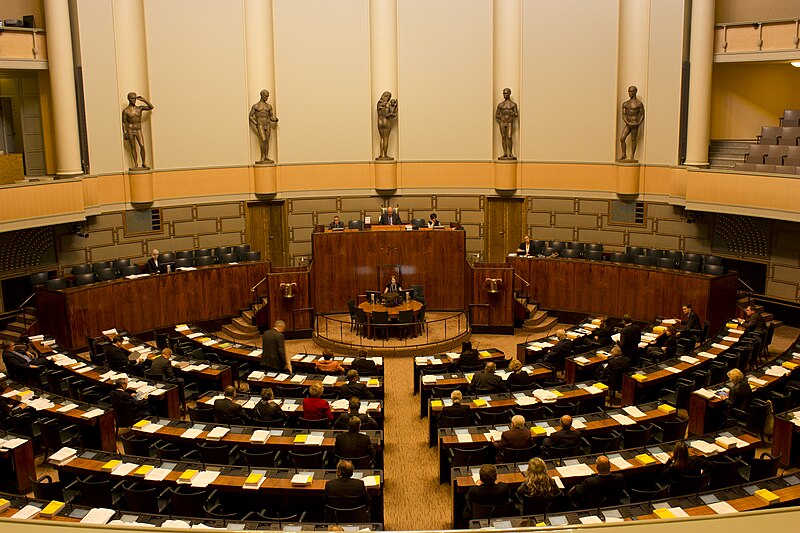
The Finnish parliament has passed a contentious government bill aimed at revising the nation’s border laws, known as the deportation bill.
The bill was approved by 167 votes to 31, requiring a supermajority—support from five-sixths of the MPs present—to pass due to the controversial nature of the changes.
The decision followed a lengthy plenary session on Friday afternoon, where 34 MPs spoke on the subject. The new legislation will enable Finnish border authorities to reject asylum applications under specific circumstances.
The government introduced the bill as a measure to counter potential 'hybrid influencing' by Russia, which could include sending large groups of migrants to Finnish border checkpoints. Prime Minister Petteri Orpo (NCP) welcomed the bill's passage, emphasizing its importance for national security. "We saw from the end of last year that Russia was using migrants as a tool for hybrid influencing against our security, and against our borders," Orpo said, adding that he hopes the law "never has to be used."
Interior Minister Mari Rantanen (Finns) praised the collaborative effort across political lines for the sake of national security. "It has been a great tradition in Finland that in matters of security we can unite across government-opposition lines and agree on solutions that are good for the security of the motherland," she said.
However, the bill's passage was not without controversy. Outgoing Left Alliance party leader Li Andersson called it a "sad day" for Finland and human rights. She criticized the Social Democrats for not allowing all their representatives to vote according to their conscience, suggesting the bill might not have passed otherwise.
Protests Inside and Outside Parliament
Before the vote, a few dozen protesters gathered on the steps of the Parliament Building to oppose the law change. Inside the chamber, demonstrators briefly interrupted the debate, shouting slogans like "Vote for values" and "No person is illegal," before being removed by security staff.
The bill has faced significant criticism both domestically and internationally. Over 200 university researchers have called for it to be quashed, and the Council of Europe's Commissioner for Human Rights, Michael O'Flaherty, expressed concerns about the bill’s human rights implications.
Despite this, a recent survey by the Uutissuomalainen news group found that nearly two-thirds of respondents supported the legislative changes.
Professor of International Law Martti Koskenniemi suggested that the law is unlikely to be applied in practice, stating that it may conflict with EU regulations and questioning its relevance to Finland's security. "Putin is not sitting in Moscow and reading this law when deciding on the actions he wants to take on Finland's eastern border," Koskenniemi said. Photo by Hteink.min, Wikimedia commons.



































